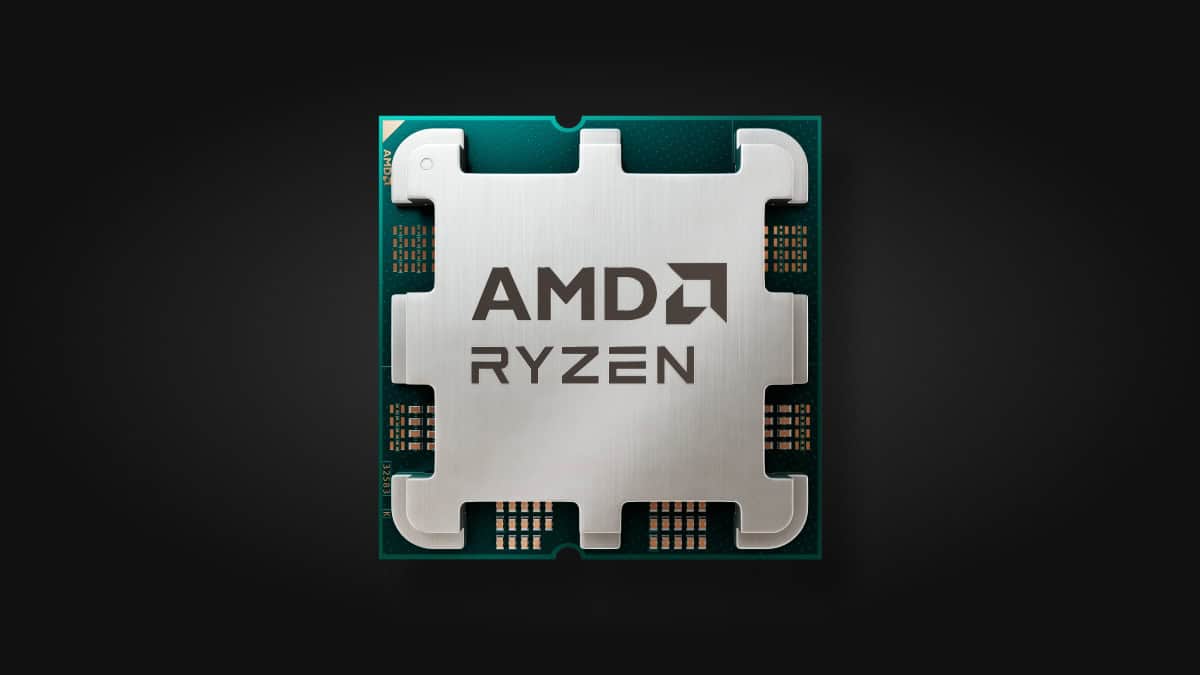AMD’s Zen 6 processors are still at least a year (or more) away, but they’re already sparking some excitement in the tech world. By all measures, Zen 5 hasn’t been a huge performance boost, and many users are publicly stating that they will be waiting for Zen 6 to drop before upgrading. The Zen 6 chips’ architecture is expected to use the cutting-edge 2nm process, which could lead to big gains in speed and power use. Rumors suggest Zen 6 will pack more transistors into a smaller space, potentially offering a big leap in performance over current CPUs.
The Zen 6 architecture is still in the early stages, with a likely release date in 2025 or later. AMD is keeping most details under wraps, but leaks hint at some impressive features. The new chips could bring major upgrades for both home users and data centers. While it’s too soon to know exact specs, AMD’s track record of innovation gives reason for optimism. Zen 6 could help AMD stay competitive with Intel and push the limits of what CPUs can do. As more info comes out, tech fans will be eager to see how Zen 6 shapes up.
Peering into the Future: AMD Zen 6 Rumors
Launch Timeline Speculation
While early rumors were for a 2026 debut for Zen 6, more recent leaks suggest AMD might be aiming for a late 2025 launch. The timeline could have been accelerated by how poorly Zen 5 is selling. The design finalization, or “tape-out,” is supposedly slated for the second quarter of 2025, potentially followed by production later that year. However, some industry whispers caution that mass production could slip into 2026, potentially impacting the final release timeline.
Performance & Efficiency Upgrades
Concrete numbers remain shrouded in secrecy, but early indicators hint at an IPC uplift ranging from 15-20% over its predecessor, Zen 5. This performance boost is coupled with rumored reductions in die size, particularly for flagship desktop models. A smaller footprint, alongside advancements in the manufacturing process, could pave the way for enhanced power efficiency and cooler running temperatures.
Architectural & Manufacturing Insights
The hybrid architecture trend appears to be continuing with Zen 6, maintaining the balance between performance-focused P-cores and efficiency-driven E-cores. TSMC’s cutting-edge N3E (enhanced 3nm) process is anticipated to be the foundation for these chips, with tantalizing whispers of some high-end CPUs potentially leveraging the even more advanced 2nm process.
Possible Product Lineup
Several codenames and product designations are floating around in the rumor mill. “Medusa” is linked to the initial Zen 6 wave, potentially targeting both laptops and AM5 desktop platforms. Strix Halo and Medusa Halo APUs, built on Zen 5 and Zen 6 architectures respectively, are also on the horizon, harnessing the power of TSMC’s N3E process. Additionally, leaks suggest three Zen 6 variants – “Standard,” “Dense Classic,” and “Client Dense” – each seemingly tailored for different market segments.
Table: Rumored AMD Zen 6 Specifications
| Feature | Rumored Specifications |
|---|---|
| Launch Timeline | Late 2025 (potentially delayed to 2026) |
| Performance | 15-20% IPC increase over Zen 5 |
| Die Size | Smaller, especially for flagship desktop models |
| Power Efficiency | Improved, potentially lower operating temperatures |
| Architecture | Hybrid architecture (P-cores and E-cores) |
| Manufacturing Process | TSMC N3E (enhanced 3nm), potentially 2nm for some models |
| Product Lineup | Medusa (laptops and AM5 desktops), Strix Halo & Medusa Halo APUs, “Standard,” “Dense Classic,” and “Client Dense” variants |
Key Takeaways
- Zen 6 may use 2nm tech for better performance and efficiency
- AMD plans to release Zen 6 processors no earlier than 2025
- The new chips could offer significant upgrades for various computing needs
Zen 6 Architecture and Performance Insights
AMD’s Zen 6 CPU architecture promises big leaps in performance and efficiency. The new design builds on Zen 4 and Zen 5 while using advanced manufacturing processes.
Advancements over Zen 4 and Zen 5
Zen 6 is set to improve on its predecessors in key areas. It may boost instructions per clock (IPC) by 10-15% compared to Zen 5. Clock speeds could also see a bump thanks to better power efficiency.
The new architecture might add more AI features. This could help Ryzen chips compete with Intel in machine learning tasks.
Zen 6 may also bring upgrades to cache sizes and memory support. These changes could speed up data-heavy workloads.
Manufacturing Process and Production
AMD plans to use TSMC’s 3nm process for Zen 6. This smaller node allows for more transistors in the same space. It should lead to better performance and power use.
Some rumors suggest AMD might even use a 2nm process. This would be a big jump but seems less likely for the first Zen 6 chips.
TSMC will likely handle most of the production. But AMD might also work with Samsung to meet demand.
Core Counts and CCD Configurations
Zen 6 could push core counts higher. Desktop chips might reach 32 cores while server CPUs could go even further.
The basic building block of 8 cores per CCX may stay the same. But AMD might tweak how it groups these cores together.
For mainstream desktop CPUs 16 cores could become more common. This would give users more power for heavy tasks.
Ryzen and EPYC Product Families
The Zen 6 lineup will likely include new Ryzen 9000 series chips for desktops and laptops. These should offer big gains for gamers and content creators.
EPYC server processors will also get the Zen 6 treatment. They’ll aim to boost data center performance and efficiency.
We might see more X3D models with extra cache. These chips are great for gaming and some pro workloads.
Compatibility and Platform Support
Zen 6 will probably work with the AM5 socket used by Zen 4. This would let users upgrade without changing motherboards.
New chipsets might come out to support Zen 6’s features. But older AM5 boards should still be compatible.
For laptops Zen 6 will need new designs. It may bring updates to power management and connectivity standards.
Anticipated Release and Market Expectations
AMD hasn’t given an official date for Zen 6. But it’s likely to launch in late 2024 or early 2025.
The company might tease Zen 6 at Computex 2024. A full reveal could happen later that year.
Market watchers expect Zen 6 to keep AMD competitive with Intel. It should help “Team Red” in both consumer and business markets.







